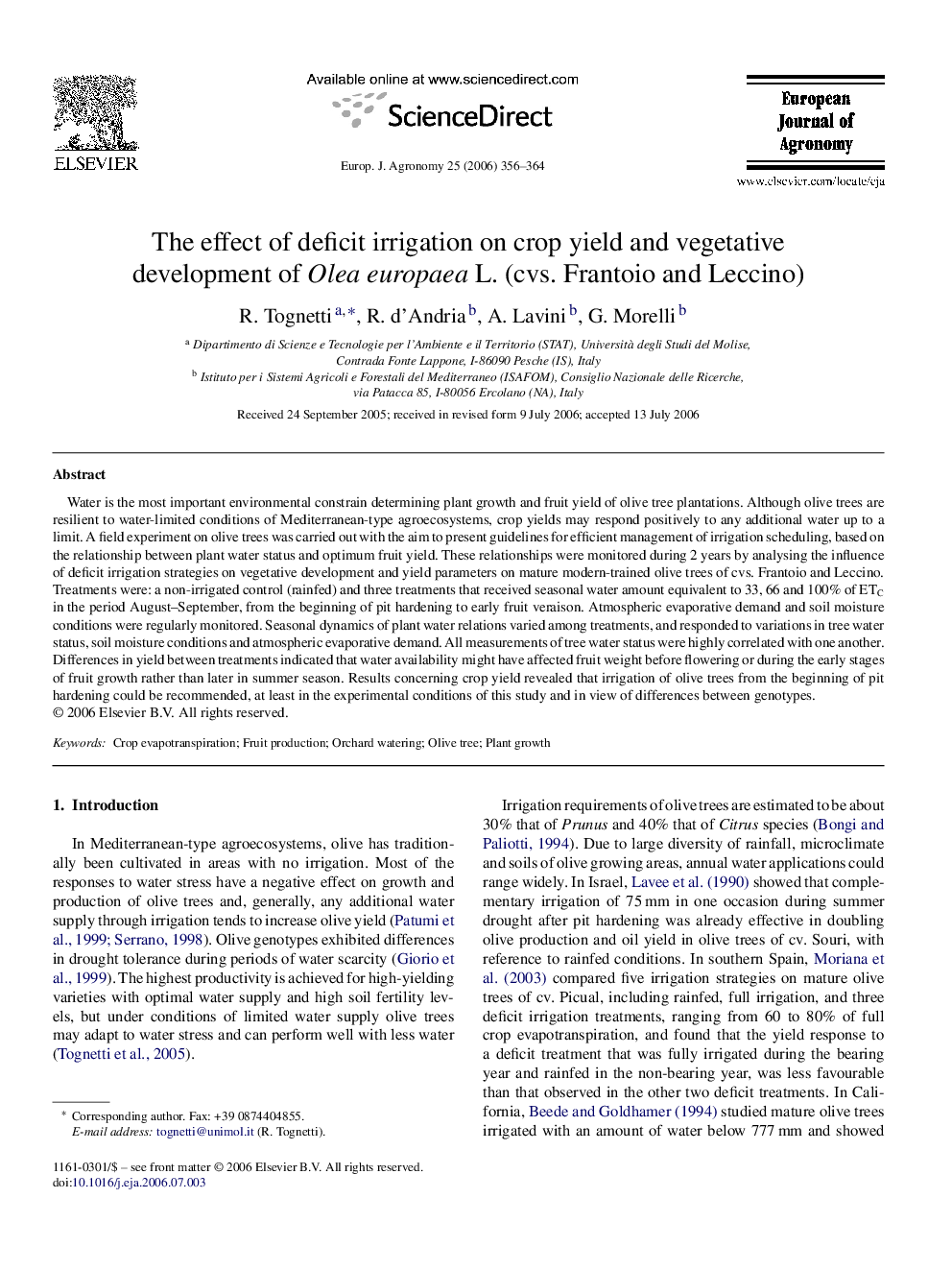| Article ID | Journal | Published Year | Pages | File Type |
|---|---|---|---|---|
| 4509685 | European Journal of Agronomy | 2006 | 9 Pages |
Water is the most important environmental constrain determining plant growth and fruit yield of olive tree plantations. Although olive trees are resilient to water-limited conditions of Mediterranean-type agroecosystems, crop yields may respond positively to any additional water up to a limit. A field experiment on olive trees was carried out with the aim to present guidelines for efficient management of irrigation scheduling, based on the relationship between plant water status and optimum fruit yield. These relationships were monitored during 2 years by analysing the influence of deficit irrigation strategies on vegetative development and yield parameters on mature modern-trained olive trees of cvs. Frantoio and Leccino. Treatments were: a non-irrigated control (rainfed) and three treatments that received seasonal water amount equivalent to 33, 66 and 100% of ETC in the period August–September, from the beginning of pit hardening to early fruit veraison. Atmospheric evaporative demand and soil moisture conditions were regularly monitored. Seasonal dynamics of plant water relations varied among treatments, and responded to variations in tree water status, soil moisture conditions and atmospheric evaporative demand. All measurements of tree water status were highly correlated with one another. Differences in yield between treatments indicated that water availability might have affected fruit weight before flowering or during the early stages of fruit growth rather than later in summer season. Results concerning crop yield revealed that irrigation of olive trees from the beginning of pit hardening could be recommended, at least in the experimental conditions of this study and in view of differences between genotypes.
